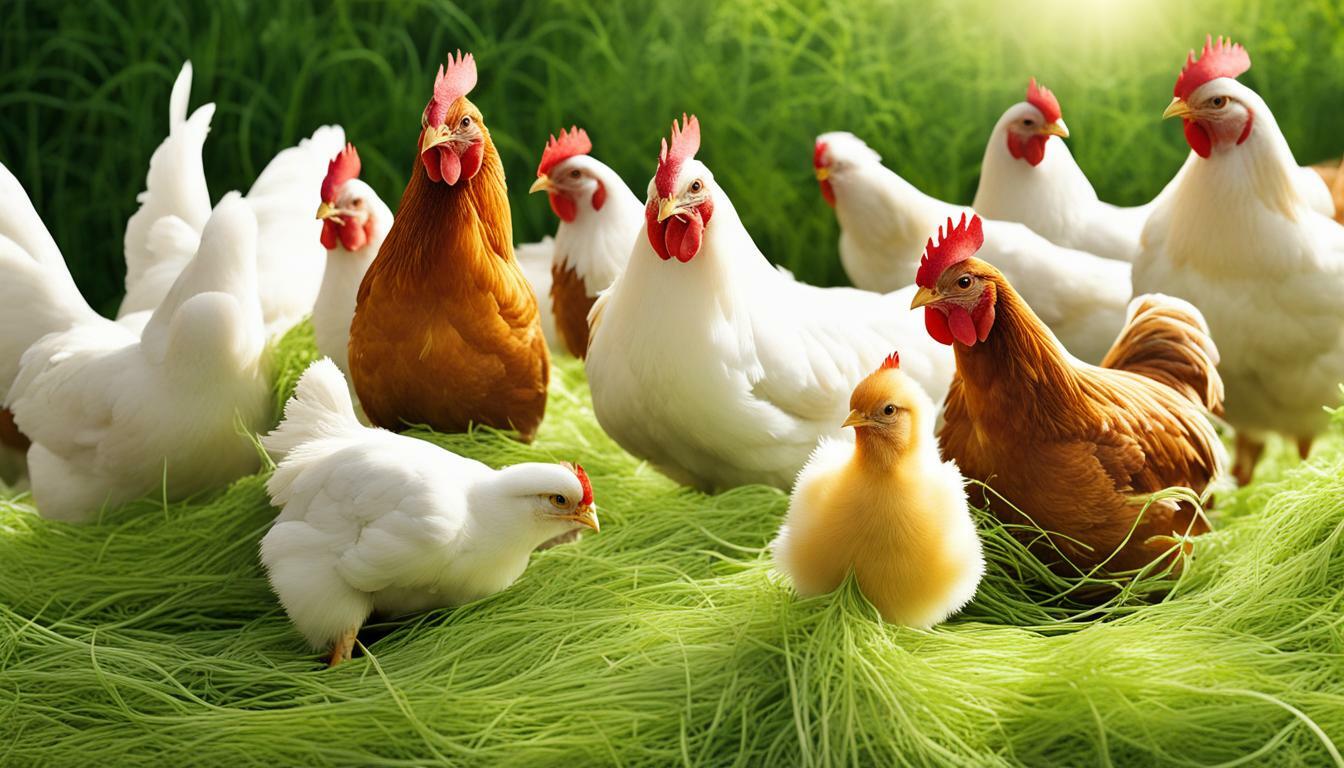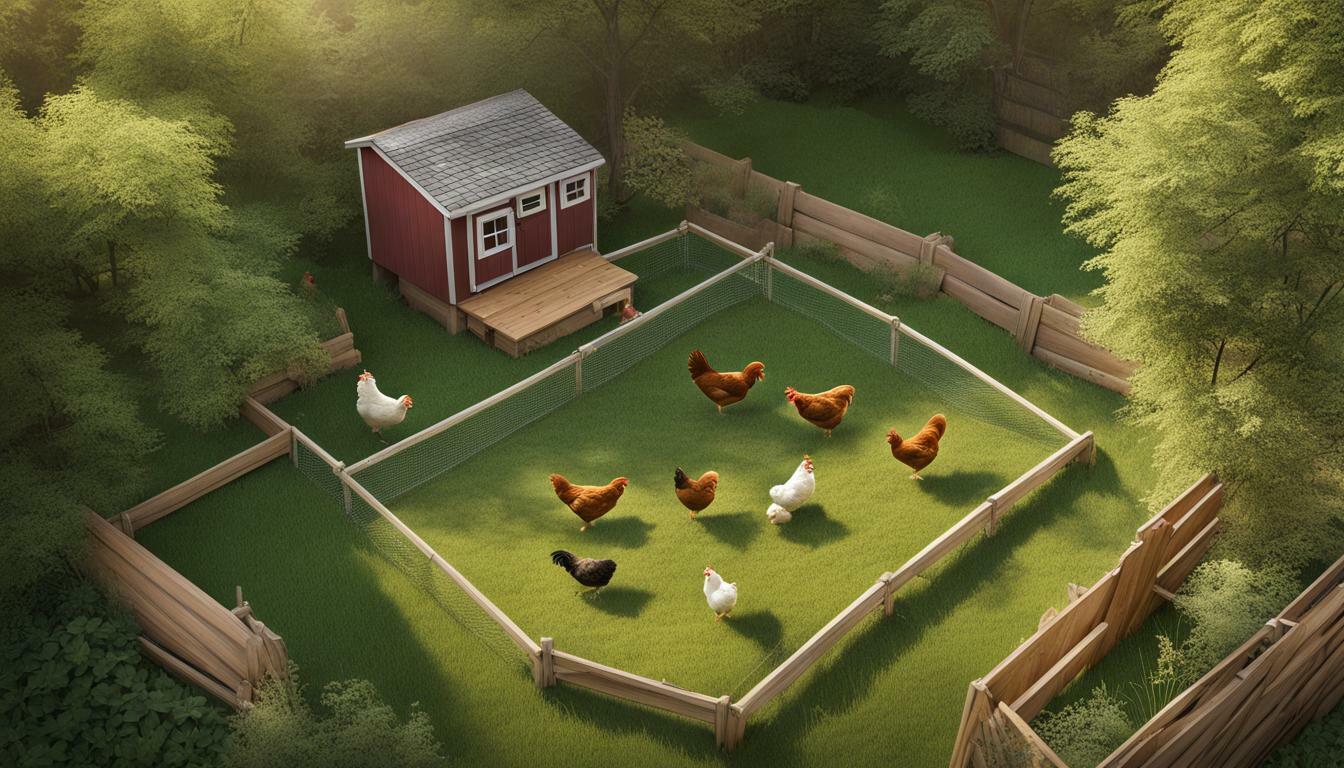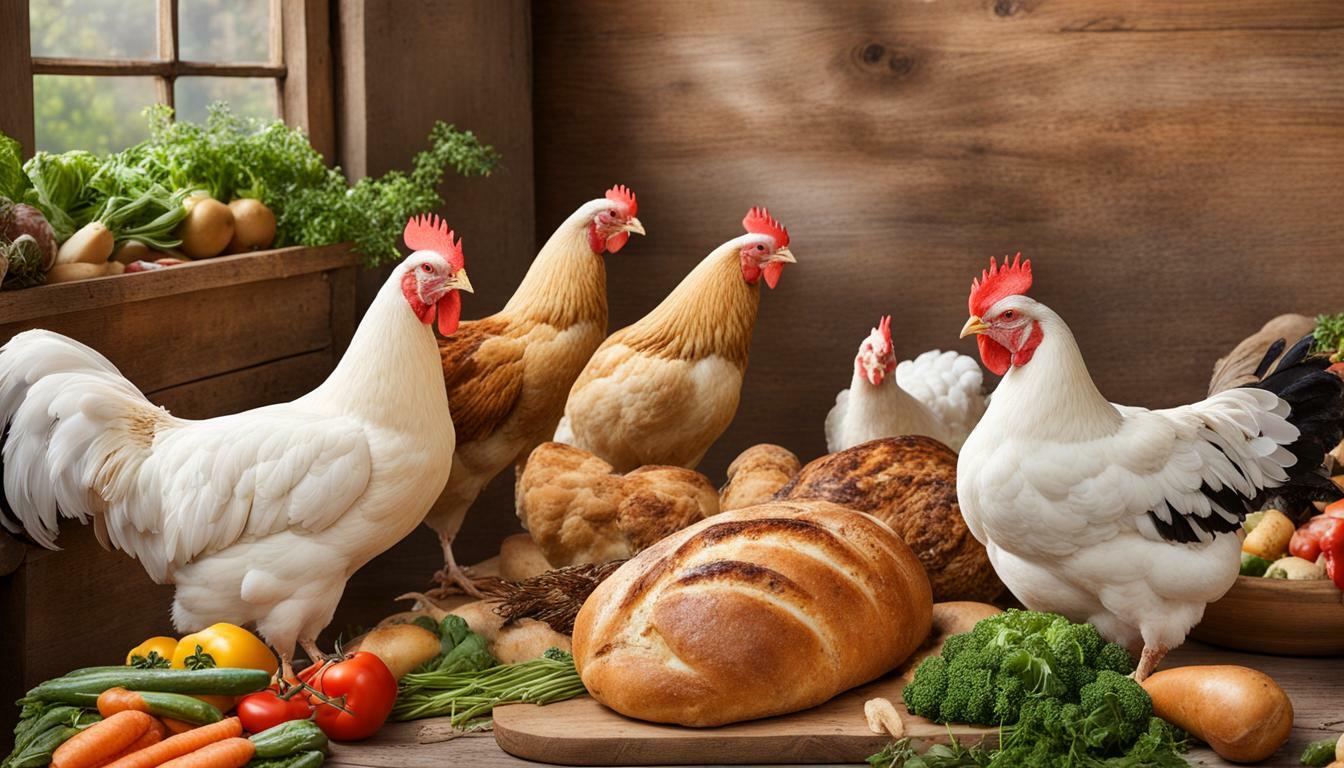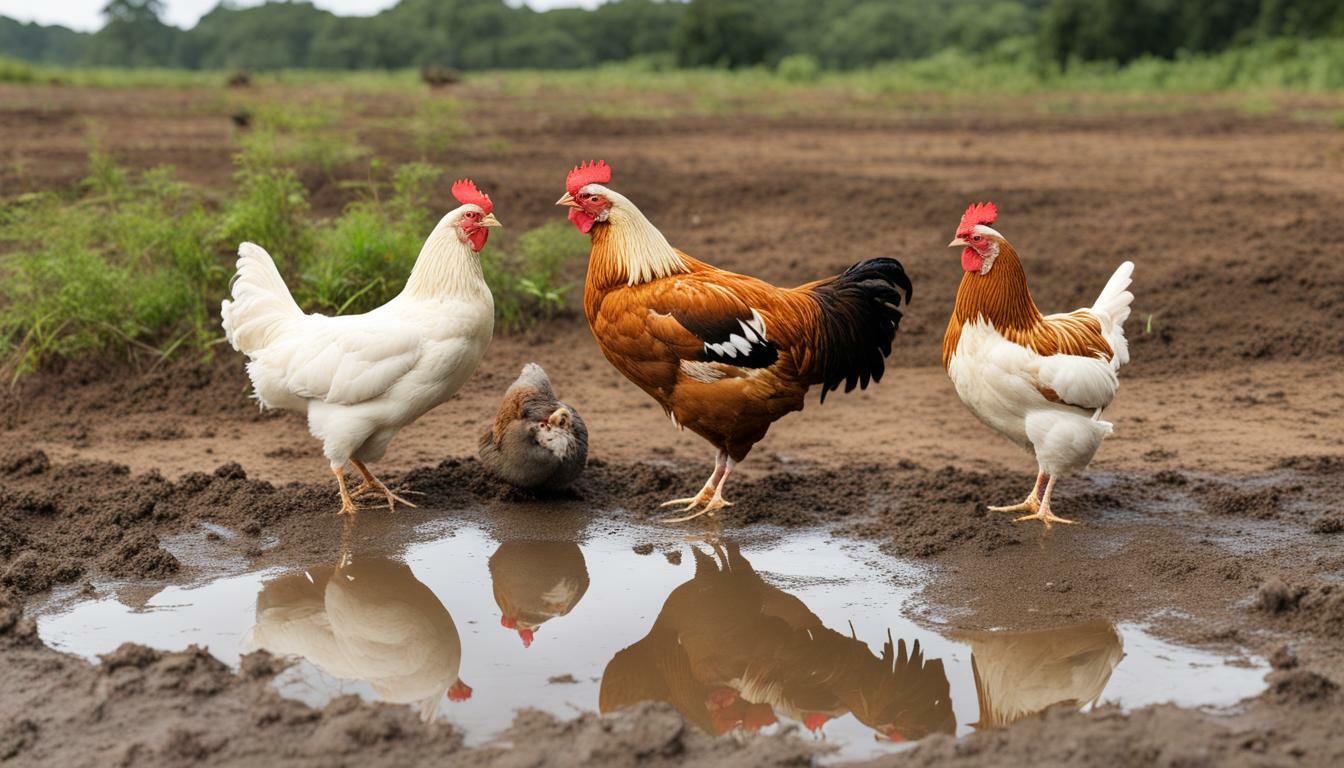Can Chickens Eat Alfalfa Sprouts? Nutritious Benefits Explored

Table of content:
- Are Alfalfa Sprouts Good for Chickens?
- What Are The Benefits of Feeding Chickens Alfalfa Sprouts?
- Do Chickens Like the Taste of Alfalfa Sprouts?
- How Much Alfalfa Sprouts Should You Feed Chickens?
- Should You Feed Chickens Alfalfa Sprouts Daily?
- Can Too Many Alfalfa Sprouts Upset a Chicken’s Stomach?
- Are There Any Risks or Dangers to Feeding Chickens Alfalfa Sprouts?
- What is the Nutritional Content of Alfalfa Sprouts for Chickens?
- Is it Better to Feed Chickens Fresh or Dried Alfalfa Sprouts?
- Final Thoughts
Alfalfa sprouts are a common ingredient in salads and sandwiches for humans, but can chickens eat them too? As a nutritious, natural food source, alfalfa sprouts may seem like a healthy treat for your feathered friends. However, there are some important factors to consider before feeding alfalfa sprouts to chickens. In this article, we’ll explore the key questions surrounding alfalfa sprouts and chickens:
Are Alfalfa Sprouts Good for Chickens?
Alfalfa sprouts provide a variety of vitamins, minerals, and amino acids that can benefit chicken health. In particular, they are high in:
- Protein – Necessary for growth and egg production. The amino acid profile of alfalfa is close to ideal for poultry.
- Vitamin A – Important for immunity and reproductive health.
- Vitamin K – Plays a role in bone health and blood clotting.
- Iron – Helps transport oxygen in the blood. Anemia is a risk for laying hens.
- Calcium – Essential for strong eggshells and bone health.
The antioxidants and phytonutrients in alfalfa sprouts also support overall health. The sprouting process increases nutrient levels over unsprouted seeds.
So with their stellar nutritional profile, it’s easy to see why alfalfa sprouts can be an excellent supplement for backyard chickens. They provide a mega-dose of the vitamins, minerals, and proteins needed for good health and egg production.
What Are The Benefits of Feeding Chickens Alfalfa Sprouts?
Adding alfalfa sprouts to your chickens’ diet can provide the following benefits:
- Increased egg production – The protein, amino acids, vitamins, and minerals support a hen’s egg-laying capacity.
- Improved eggshell quality – The calcium and vitamin D content contributes to strong eggshells that resist cracking.
- Enhanced feathering – The protein promotes feather growth and replacement during molting periods.
- Greater fertility – Vitamin E acts as an antioxidant to improve rooster fertility.
- Stronger immune function – Vitamins A, C, E, and K help boost the immune system and prevent disease.
- Better digestion – The fiber aids digestion while the nutrients enhance gut health and function.
- Increased energy – Chickens have greater energy levels and activity when getting proper nutrition.
- Stress reduction – A diet rich in vitamins and minerals can help temper the effects of stress.
So feeding a few handfuls of alfalfa sprouts provides a treasure trove of nutrients that lead to some key benefits for your flock. The bottom line is happier, healthier, and more productive chickens!
Do Chickens Like the Taste of Alfalfa Sprouts?
Chickens are natural foragers with diverse tastes and preferences. For any new food, your hens will decide if it suits their fancy. To find out if your flock likes alfalfa sprouts:
- Observe your chickens as they investigate and peck at the sprouts for the first time. Do they eagerly devour them or ignore them?
- Try mixing a handful of sprouts into their regular feed to encourage interest and tasting.
- Offer dried vs fresh sprouts to see if one form is preferred over the other.
- Sprinkle some over their favorite treats like mealworms or scratch grain.
- Make sprouts visible and accessible around the run or coop to entice pecking and snacking.
- Start chicks early – they will imprint on greens like alfalfa sprouts more readily than older chickens.
The beauty of foraging flocks is that birds can choose to eat what suits them. Watch to see which hens eagerly gobble up alfalfa sprouts versus those less interested. You can then adjust amounts accordingly.
How Much Alfalfa Sprouts Should You Feed Chickens?
Finding the right amount of alfalfa sprouts to feed chickens depends on the size of your flock and the individual bird’s preferences. Some key tips:
- Start small – introduce alfalfa sprouts slowly to avoid stomach upset or diarrhea. Begin with a handful mixed into regular feed.
- Aim for variety – sprouts should be part of a diverse diet including grains, bugs, greens, grit, kitchen scraps, and omega foods like flax.
- Follow flock cues – increase the sprouts if chickens eagerly consume them, back off if uninterested.
- Try set amounts – for a starting point, offer mature birds 1-2 ounces of sprouts per hen 2-3 times a week. Adjust as needed.
- Grow your own – an ideal amount is around 15% of their total feed intake from fresh greens and sprouts.
- Free feed small bunches – hang tied bunches in the run for pecking and free consumption as desired.
Start slowly, provide free access, watch your flock’s preferences, and adjust sprout amounts accordingly for optimal nutrition without waste.
Should You Feed Chickens Alfalfa Sprouts Daily?
Alfalfa sprouts are packed with nutrients, but is daily feeding recommended or too much? Here are some factors to consider:
- Benefits – small daily amounts can provide a consistent nutrient boost. However, sprouts have limited energy and protein compared to grains.
- Balance – alternate sprouts with other greens and treats. Variety ensures a balanced diet.
- Boredom – chickens may ignore sprouts if they become mundane. Use sprouts judiciously for maximum appeal.
- Natural behavior – foraging flocks enjoy exploring and choosing foods. Rotating sprouts keeps it interesting.
- Gut health – too much of any food can cause indigestion. Monitor manure quality for health cues.
- Waste – spoiled, uneaten sprouts are wasted. Offer smaller portions, free feed, or grow your own to match demand.
- Nutrient needs – hens have higher requirements during molt and laying; extra sprouts help meet increased needs.
Daily sprout treats are fine depending on your chickens’ preferences. However incorporating sprouts strategically into a varied diet is ideal for nutrition, appeal, and reducing any waste.
Can Too Many Alfalfa Sprouts Upset a Chicken’s Stomach?
While nutritious, excessive alfalfa sprout consumption can cause digestion issues for chickens:
- Gas and bloating – the fiber may ferment and cause uncomfortable gas.
- Diarrhea – loose droppings from too much fiber, fluids, or sudden diet change.
- Intestinal upset – vomiting, lethargy, off-color faces signal nausea, inflammation, or imbalance.
- Nutrient deficiencies – overfeeding sprouts dilutes protein, fat, and other nutrients needed from a complete feed.
- Dehydration – watery diarrhea can lead to dehydration, a dangerous condition for birds.
- Weight loss – insufficient nutrition and illness can cause rapid weight loss, especially in young birds.
The key is starting slowly with alfalfa introductions, providing free-choice insoluble grit to aid digestion, and feeding sprouts as part of a varied diet in moderate amounts. Alert chickens with signs of distress need prompt treatment. Removing or reducing sprouts may be necessary if stomach upset persists.
Are There Any Risks or Dangers to Feeding Chickens Alfalfa Sprouts?
Alfalfa sprouts are non-toxic and safe for chicken consumption. However, there are a few considerations:
- Allergies – chickens can have rare allergic reactions to new foods. Watch for facial swelling, respiratory distress, or skin reactions.
- Choking hazard – make sure sprouts are cut small enough to avoid potential choking.
- Food-borne illness – contaminated sprout seeds have caused human outbreaks. Purchase clean, sanitary sprouting seeds.
- Pesticides – conventionally grown seeds may carry pesticide residues. Opt for organic sprouting seeds when possible.
- Mold – discard any sprouts with black or white mold spots indicating spoilage.
- Dehydration – excessive diarrhea can lead to dangerous water loss. Have fresh water available at all times.
By starting slowly, monitoring for individual reactions, and feeding clean, fresh organic sprouts, any risks are minimal. The biggest danger would be a chick choking from attempting to swallow a large, whole sprout.
What is the Nutritional Content of Alfalfa Sprouts for Chickens?
The nutrient content of alfalfa sprouts makes them a nutritional powerhouse:
- Protein – 2-3g per ounce. Provides amino acids for growth, muscles, and egg protein.
- Vitamin A – 52% DV. Critical for eye and reproductive health.
- Vitamin K – 30% DV. Essential for blood clotting.
- Vitamin C – 8% DV. Boosts collagen production and immunity.
- Iron – 5% DV. Vital mineral to prevent anemia.
- Calcium – 4% DV. Needed for strong bones and eggshells.
- Magnesium – 4% DV. Supports enzymes, nerves, and metabolism.
- Potassium – 3% DV. Important for muscles, nerves, and nutrient digestion/absorption.
- Zinc – 2% DV. Plays a role in immunity, growth, and reproduction.
Along with B vitamins, manganese, folate, phosphorus, and more. The fiber aids digestion while the rich antioxidant content reduces inflammation and cell damage.
Is it Better to Feed Chickens Fresh or Dried Alfalfa Sprouts?
Fresh sprouts retain more nutrients versus drying:
- Vitamin content – Drying destroys some vitamins A, C, E, and B vitamins. Fresh maximize the vitamin benefits.
- Proteins – Heat from drying can denature some proteins. Fresh keeps proteins intact.
- Phytonutrients – Drying reduces the polyphenols, flavonoids, and antioxidants in fresh sprouts.
However, dried sprouts offer some advantages:
- Storage – Dried sprouts keep for months without spoiling like fresh.
- Biosecurity – The drying process kills any bacteria or mold spores.
- Convenience – Dried sprouts don’t require refrigeration or daily harvesting like fresh.
- Cost – Purchasing dry sprout powder can be cheaper than purchasing or growing fresh.
For maximum nutrition, fresh alfalfa sprouts are ideal. But dried sprout powder provides a more convenient alternative without sacrificing too much nutritional value. The choice depends on your budget, facilities, and how sprouts are incorporated into the overall diet.
Final Thoughts
When feeding in moderation, alfalfa sprouts can provide valuable nutrition and benefits to a backyard chicken flock. Follow your chickens’ lead to determine preferred amounts. Include sprouts as part of a varied diet to reap their nutrients while avoiding excess. Monitor for any signs of digestive upset. With some careful management, alfalfa sprouts are a healthy supplemental food source for most chickens. After addressing the key questions, you can feel confident offering this power-packed food to your feathered flock.
Welcome. I’m Adreena Shanum, the proud owner of this website, and I am incredibly passionate about animals, especially poultry. I founded adreenapets.com as a labor of love, stemming from my desire to share my knowledge and experiences with poultry enthusiasts worldwide.




